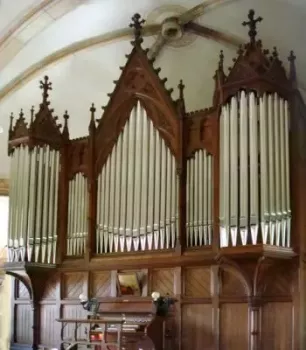 P2P | 1 November 2024 | 9.33 GB
P2P | 1 November 2024 | 9.33 GB
The organ of the St. Bonifatius church in Ditfurt/Germany has been built by Ernst Röver in 1903. Röver was one of the foremost organ builders in the eastern parts of Germany of the late romantic area. More than 60 of his organs are still in existance in this area of the contry.
Rövers organs are characterized by a large number of foundation stops of different tonal colors, mixtures without breaks and a sparing use of reeds. For this organ this means that about 2/3 of all stops are 16′ and 8′ stops providing the organist with a huge pallette of sounds. Both mixtures are straight without breaks, and the organ uses only two reeds, the Hauptwerk trumpet and the powerful Pedal Posaune.
His organs are also known for exceptionally high quality, he used the best materials available and put much emphasis on good craftsmanship, making his organs work flawlessly for very long. Röver brought the pneumatic unit chest to a level of perfection that yielded a response without noticable lag, making this pneumatic action organ respond as directly as a good tracker action. The action is also operating very quietly, and, since most of the sensitive parts are protected inside the wind chest, it is working nearly maintenance free for decades.
The organ has survived all modernization trends, maintaining its tonal characteristics basically unchanged. In 2006 it was restored to perfect working condition and some pipework that had been replaced by lower quality material during the wars of the past century could be replaced with new pipes made of the original material.
This organ is now a premier example of the late romantic period and of the solid craftsmanship of Ernst Röver.
转载请注明:0daytown » Pipeloops Röver organ Ditfurt Germany (HAUPTWERK)